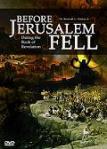REVELATION’S DATE: EXTERNAL EVIDENCE (2)
 PMW 2020-109 by Kenneth L. Gentry, Jr.
PMW 2020-109 by Kenneth L. Gentry, Jr.
As I continue my series on the dating of Revelation, I will present two of the leading external witnesses for the late date: Irenaeus and Origen.
Irenaeus (A.D. 130-202)
Undoubtedly the most commonly used and strongest external objection to the early date of Revelation is the famous sNovember 2, 2020tatement by Irenaeus (ca. A.D. 180) in book 5 of his Against Heresies. This statement is very early and seems clear and to the point. It occurs at the end of a section in which he is dealing with the identification of Revelation’s “666,” which Irenaeus applies to the Antichrist:
We will not, however, incur the risk of pronouncing positively as to the name of Antichrist; for if it were necessary that his name should be distinctly revealed in this present time, it would have been announced by him who beheld the apocalyptic vision. For that was seen no very long time since, but almost in our day, towards the end of Domitian’s reign.
Nevertheless, several problems reduce the usefulness of this statement for late date advocacy.
First, the translation problem. The statement “that was seen” (or “it was seen”) grammatically may refer either to one of two antecedents. It may refer either to “the apocalyptic vision” (i.e., Revelation) or to “him who beheld the apocalyptic vision” (i.e., John). Greek is an inflected language, containing the pronominal idea in the verb ending. Here the verb may legitimately be translated either “it was seen” or “he was seen.” According to David Aune in his recent, massive commentary, New Testament commentator J. Stolt (1977):
following Wettstein, Novum Testamentum Gracecum (2:746), has argued that ‘the one who saw the Apocalypse’ is the logical subject of eorathe and has proposed that what Irenaeus had in mind was to comment on how long the author of Revelation had lived, not on when he had written Revelation. This is in fact a view argued by various scholars since Wettstein.
The verb ending leaves the question open; Irenaeus does not provide conclusive external evidence.

Before Jerusalem Fell Lecture
DVD by Ken Gentry
A summary of the evidence for Revelation’s early date. Helpful, succinct introduction to Revelation’s pre-AD 70 composition.
See more study materials at: www.KennethGentry.com
Second, the contextual indication. Irenaeus’ argument regards the identity of the person represented by “666″:
“We will not, however, incur the risk of pronouncing positively as to the name of Antichrist; for if it were necessary that his name should be distinctly revealed in this present time, it would have been announced by him who beheld the apocalyptic vision. For that or he was seen no very long time since, but almost in our day, towards the end of Domitian’s reign.”
This context seems to demand that Irenaeus refers to John, whom he believes to have lived almost to his (Irenaeus’) own time. When Irenaeus says: “it would have been announced by him” it would most logically follow that his next statement should be translated: “for he was seen no very long time since, but almost in our day.” In other words, Irenaeus appears to be urging: If John, who wrote Revelation with its mysterious 666, had wanted us to know who 666 identified, he would have told us personally, for he lived a long time after writing it, almost in my own time.”
Third, the point of Irenaeus. As Schaff notes a major point of Irenaeus’ work is to demonstrate the living continuity of the Church. He is concerned to show that the truths of Christianity are passed on orally from one generation to another. This purpose in his writing would suggest that his concern was with whether or not John talked about it among those to whom he ministered, rather than on when John wrote.
Fourth, the problem in Irenaeus. If this reference speaks of the date of the writing of Revelation and not the date to which John the author lived, then we have an unusual situation. Earlier in the same chapter Irenaeus speaks of “ancient copies” of Revelation (Heresies 5:30:1). Would he argue in one paragraph about the ancient copies of the book and then a few paragraphs later about the book’s original composition near to his own time? Surely the book was written earlier — in “ancient” times — even though John himself is presumed to have lived almost into Irenaeus’ day.
Fifth, the eyewitnesses of Irenaeus. assuming the common translation of Irenaeus’ statement, we must note that a major element of his proof is his reference to eyewitnesses. But Irenaeus uses eyewitnesses in another place to prove that Jesus lived to be almost fifty years old:
For how had He disciples, if He did not teach? And how did He teach, if He had not a Master’s age? For He came to Baptism as one Who had not yet fulfilled thirty years, but was beginning to be about thirty years old; (for so Luke, who hath signified His years, hath set it down; Now Jesus, when He came to Baptism, began to be about thirty years old:) and He preached for one year only after His Baptism: completing His thirtieth year He suffered, while He was still young, and not yet come to riper age. But the age of 30 years is the first of a young man’s mind, and that it reaches even to the fortieth year, everyone will allow: but after the fortieth and fiftieth year, it begins to verge towards elder age: which our Lord was of when He taught, as the Gospel and all the Elders witness, who in Asia conferred with John the Lord’s disciple, to the effect that John had delivered these things unto them: for he abode with them until the times of Trajan. And some of them saw not only John, but others also of the Apostles, and had this same account from them, and witness to the aforesaid relation. Whom ought we rather to believe? These, being such as they are, or Ptolemy, who never beheld the Apostles, nor ever in his dreams attained to any vestige of an Apostle?
So in the final analysis, his use of eyewitnesses is not always trustworthy, to say the least.
Thus, a re-interpretation of Irenaeus, the major witness for the late date, would appear in order. At the very least the strength of his witness should be lessened due to these very real problems facing the interpreter of Irenaeus.

Blessed Is He Who Reads: A Primer on the Book of Revelation
By Larry E. Ball
A basic survey of Revelation from an orthodox, evangelical, and Reformed preterist perspective. Ball understands John to be focusing on the destruction of Jerusalem and the temple in AD 70. Insightful. Easy to read.
For more Christian studies see: www.KennethGentry.com
Origen (A.D. 185-254)
Origen wrote early in the third century. He is almost universally cited as a late date witness. His famous statement is found in his commentary on Matthew:
The king of the Romans, as tradition teaches, condemned John, who bore testimony, on account of the word of truth, to the isle of Patmos. John, moreover, teaches us things respecting his testimony, without saying who condemned him when he utters these things in the Apocalypse. He seems also to have seen the Apocalypse in the island.
It should strike the unprejudiced mind that this writer — considered one of the leading witnesses for the late date — does not even name the emperor of the banishment. The name of Domitian is merely assumed to apply there, and for two basic reasons: (1) Banishment was more frequently used by Domitian. (2) Irenaeus, a few years earlier, apparently taught that Revelation was received by John in Domitian’s day. But the first reason is a mere probability statement and the second relies on a debatable interpretation of Irenaeus. The reference to Origen is less than convincing.
Kenneth L. Gentry Jr.'s Blog
- Kenneth L. Gentry Jr.'s profile
- 85 followers



